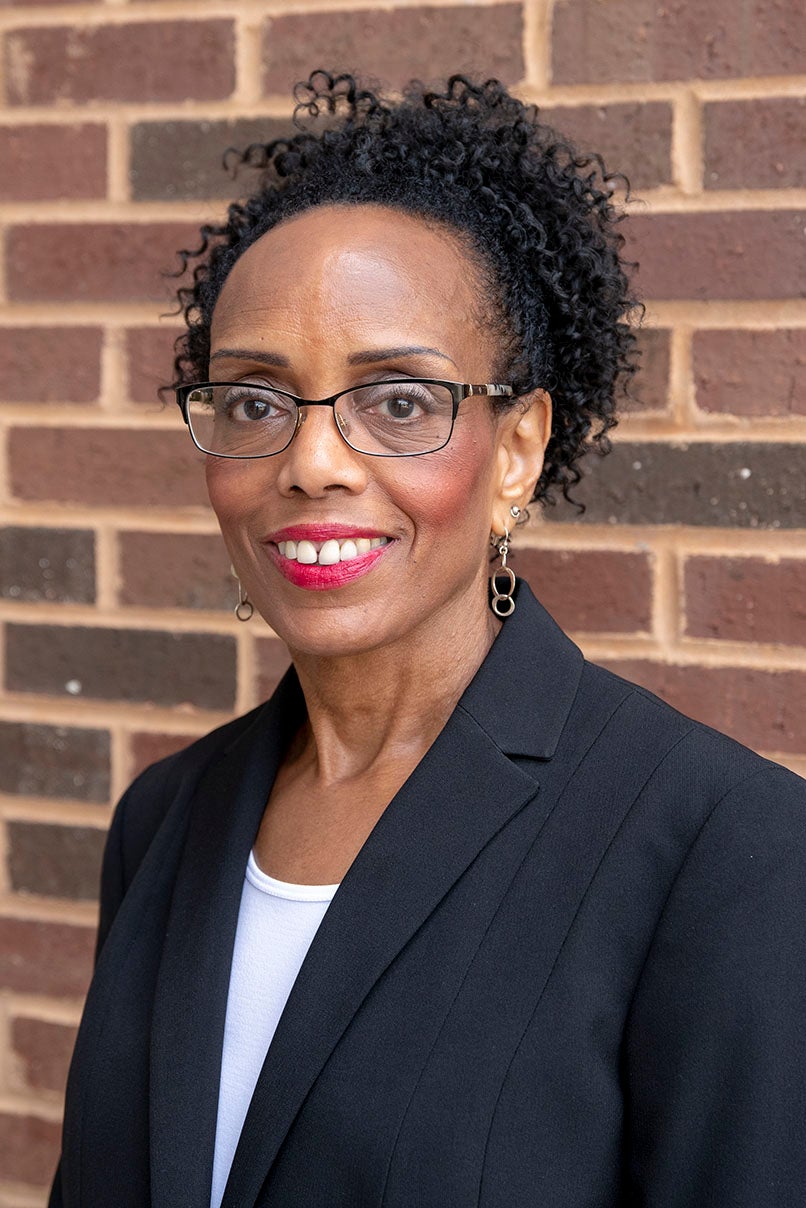NURSES ADDRESSING NEEDS
ECU College of Nursing poised to improve rural access to health care with new $2.8 million grant
Thanks to new grant funding, graduates from several ECU College of Nursing departments will be poised to provide health care that makes a big difference in small communities.
The four-year, $2.79 million grant from the U.S. Health Resources and Services Administration (HRSA) awarded to the College of Nursing promises to transform the advanced practice registered nurse (APRN) workforce and improve access to health care in rural and underserved areas of eastern North Carolina.
The Advanced Practice Registered Nurse Academic-Clinical Practice Collaborative will bring together students from three APRN concentrations to learn first-hand about the health care needs in areas that have the least access to care and a high prevalence of farmers, fishers and loggers who face different occupational hazards.
“It’s an opportunity to not only give students excellent primary care experiences in rural health, but also to give them hands-on exposure to what it’s like to care for clients in eastern North Carolina,” said Dr. Pamela Reis, an associate professor in the Department of Nursing Science, who will lead the project. “Hopefully this will create investment in wanting to work in rural and underserved communities in the future.”
The project is centered on the APRN Rural and Underserved Roadmap to Advance Leadership (RURAL) Scholars Program created by Reis, which will recruit 84 advanced practice nursing students from nurse practitioner, nurse-midwifery and clinical nurse specialist concentrations over the four-year period and place them in rural communities through a partnership with Vidant Health. The students will also receive specialized training that is designed to help them understand patient needs and provide better care in these areas.
Among the requirements for students are courses in agromedicine and telehealth, along with participation in the Purple and Golden Bus Tour of eastern North Carolina and standardized patient exercises that will include simulated health care experiences with American Indian rural residents, African American farmers, Latino farm workers and elderly farmers. Participants will also be prepared for leadership positions in health care and learn about addressing rural health care needs more broadly through public speaking training and discussions with public health department directors, legislators and health care administrators.
Further incentivizing students’ participation in the RURAL Scholars program is a stipend that goes toward funding their education. The grant provides part-time students with $11,000 toward their education while full-time students receive $22,000. For each year of financial support they receive, students are asked to provide two years of work experience in rural or underserved communities.
Filling a Need
Ninety-one of North Carolina’s 100 counties have a physician-per-population ratio that is lower than the national ratio of 30 per 10,000, according to a HRSA Area Resource File. And although the number of physicians in North Carolina has risen over the years, the gap between counties with a shortage of physicians and those with no shortage has grown. Of the 41 counties in eastern North Carolina, 28 have fewer than five primary care physicians per 10,000 residents, and 30 have fewer than five nurse practitioners.
Although advanced practice registered nurses are educated to provide primary care services, in North Carolina they are only allowed to do so under the supervision of a physician. Because physicians are more highly concentrated in urban areas of the state, rural areas are often left without with few or no primary care options nearby.
Identical bills currently making their way through the state House of Representatives and Senate would remove the physician supervision requirement, paving the way for more primary care providers to serve the communities that need them most.
“There’s a need, but there hasn’t been an ability for them [APRNs] to practice [independently] in rural communities,” Reis said. “Many hospitals in rural communities are closing which probably will impact the ability of our students to work in rural or underserved communities. It’s kind of the perfect storm of opportunity for our students. If this legislation passes, they will be able to go to rural communities and provide care to people who may not be receiving care because of all the closures that are going on in health care facilities.”
The RURAL Scholars Program is designed to prepare a variety of advanced practice nurses to fill those voids. A majority of the students recruited for the program will be nurse practitioner students — “they are the ones providing the bulk of primary care in North Carolina in terms of APRNS,” Reis said. They will be joined by nurse-midwifery students as well as a few clinical nurse specialist students.
Second-year nurse midwifery student Katelyn Veal, who was selected for the program, said she appreciated the program encouraging the primary care aspects of the midwife practice.
“Including midwives in it and recognizing primary care as a significant scope of our practice is important,” said Veal, who worked as a critical care nurse for seven years. “I think a lot of people just consider midwives to be involved in the labor and delivery part of women’s health, but we’re providers that are really uniquely positioned to interface with women annually. They can take advantage of the services we provide — we provide primary care services as well, and we can be utilized in rural parts of the state to increase access to care.”
First-hand learning experience
Veal and other participants will be placed in Vidant Health clinics in rural areas throughout eastern North Carolina to learn first-hand what health care professionals face there in terms of patient care.
Mallory Moore, a Doctor of Nursing Practice student who received her bachelor’s degree in nursing from ECU in 2016, has been placed in a clinic in her hometown of Tarboro as part of the program.
“I grew up going to Tarboro clinics. It has grown quite a bit since then,” Moore said. “It’s really exciting, but it’s kind of intimidating at the same time — I keep thinking they’re going to think that I’m still little Mallory with the big bow in my hair. But I think it’s going to be a cool way to give back and show the community that I’ve grown up, and to help out back home.”
While she currently works at Duke University Hospital, Moore said the transplant unit that she works in regularly gets patients from rural areas, so she’s become familiar with some of the challenges those patients face.
“One of the things that I’ve noticed is that the folks that come from rural everywhere in North Carolina, rural South Carolina, Virginia, other neighboring states, it’s all kind of what I grew up with: the health disparities… folks don’t seem to have a lot of education surrounding health care, surrounding how to prevent chronic illnesses and kidney failure, education about controlling diabetes and managing conditions that they do have,” Moore said. “If I can bring a little bit more knowledge to those communities and help better control one person’s diabetes, I think that makes a huge difference. That’s one less transplant that’s going to be needed because of diabetes.”
This program is unlike any other attempting to address the health care deficiencies in rural and underserved areas, Reis said. She’s hopeful that it will lead to more advanced practice nurses in rural parts of eastern North Carolina, and that the program can serve as a model for other areas experiencing similar issues.
“This provides a learning opportunity that, to my knowledge, is not available at any other university, so it’s a very unique opportunity for students,” Reis said. “We’re hoping that our program will be a model for others to develop similar programs — that schools that have an infrastructure and mission similar to East Carolina’s will be able to take what we do and replicate it at their institutions.”


